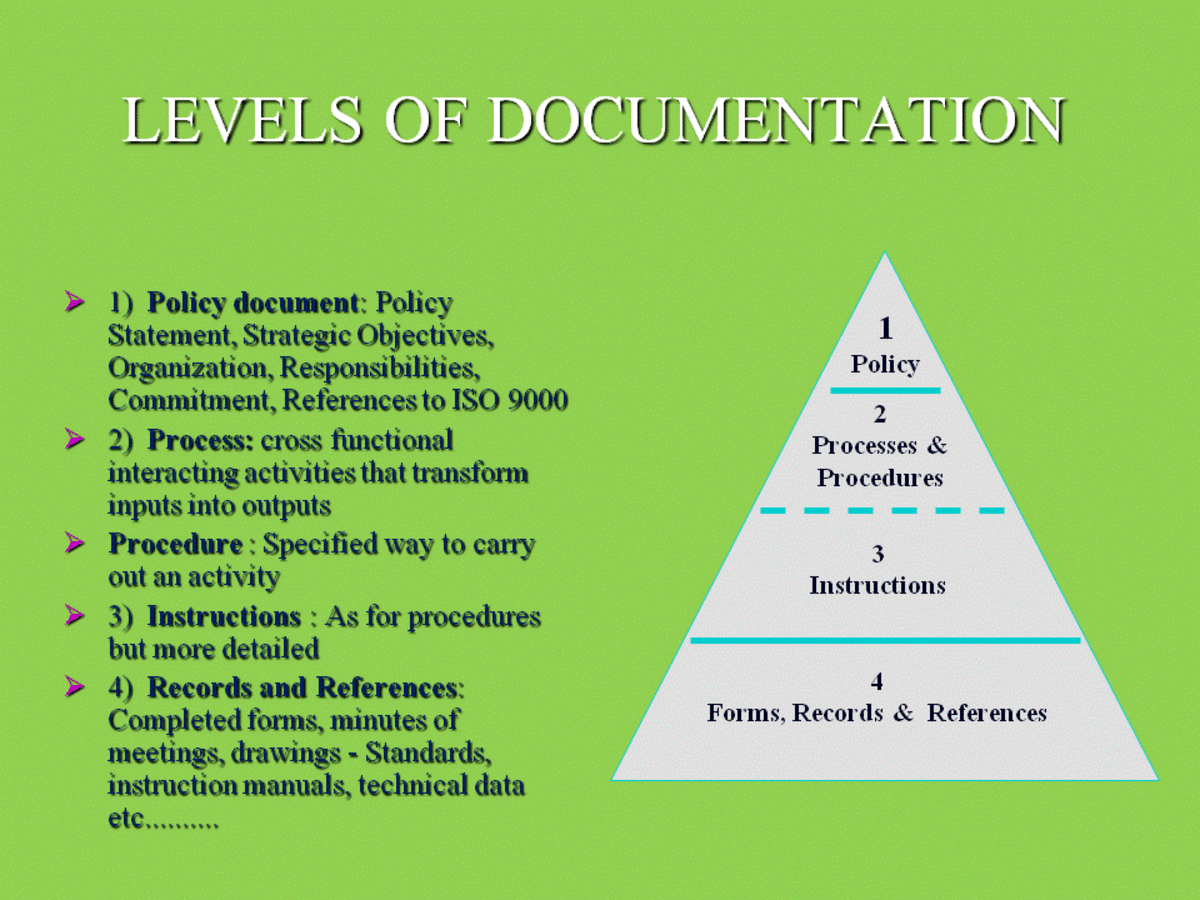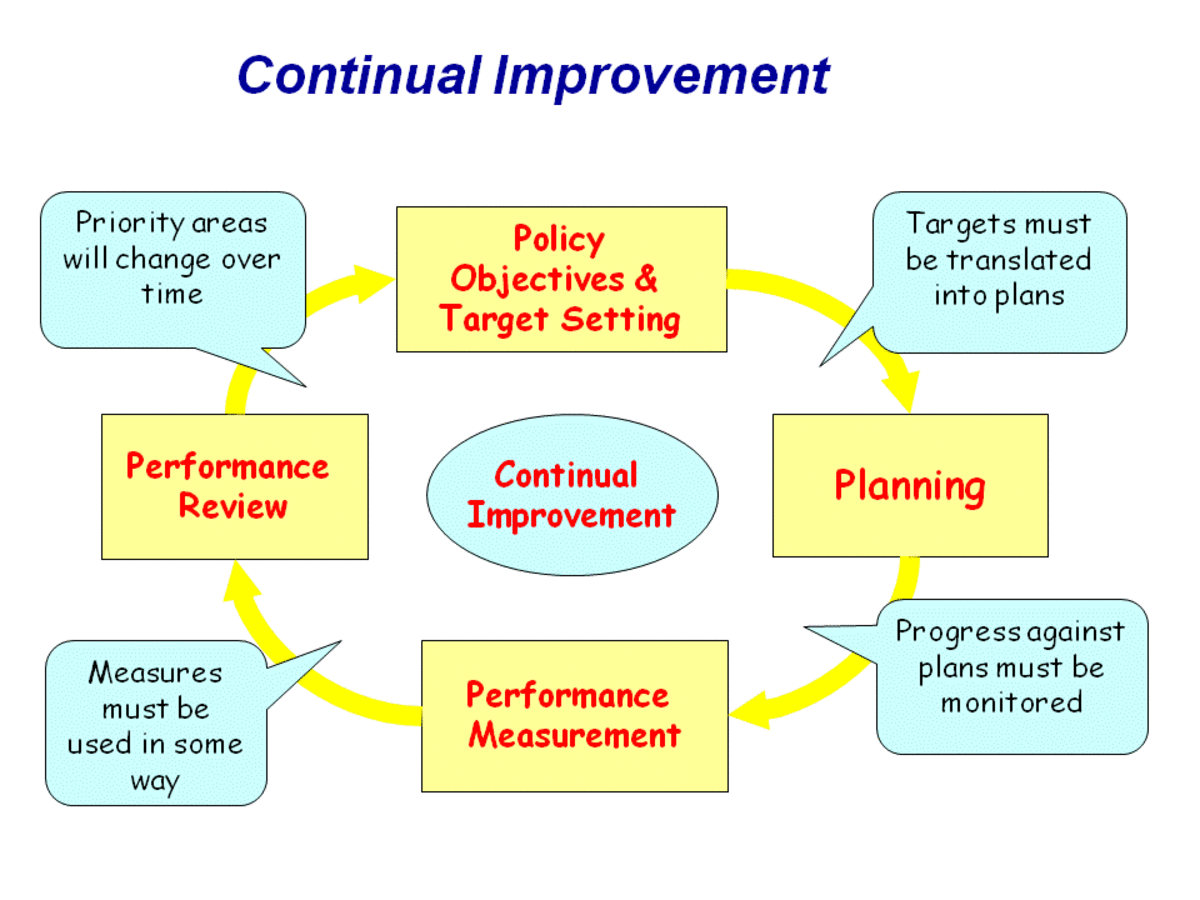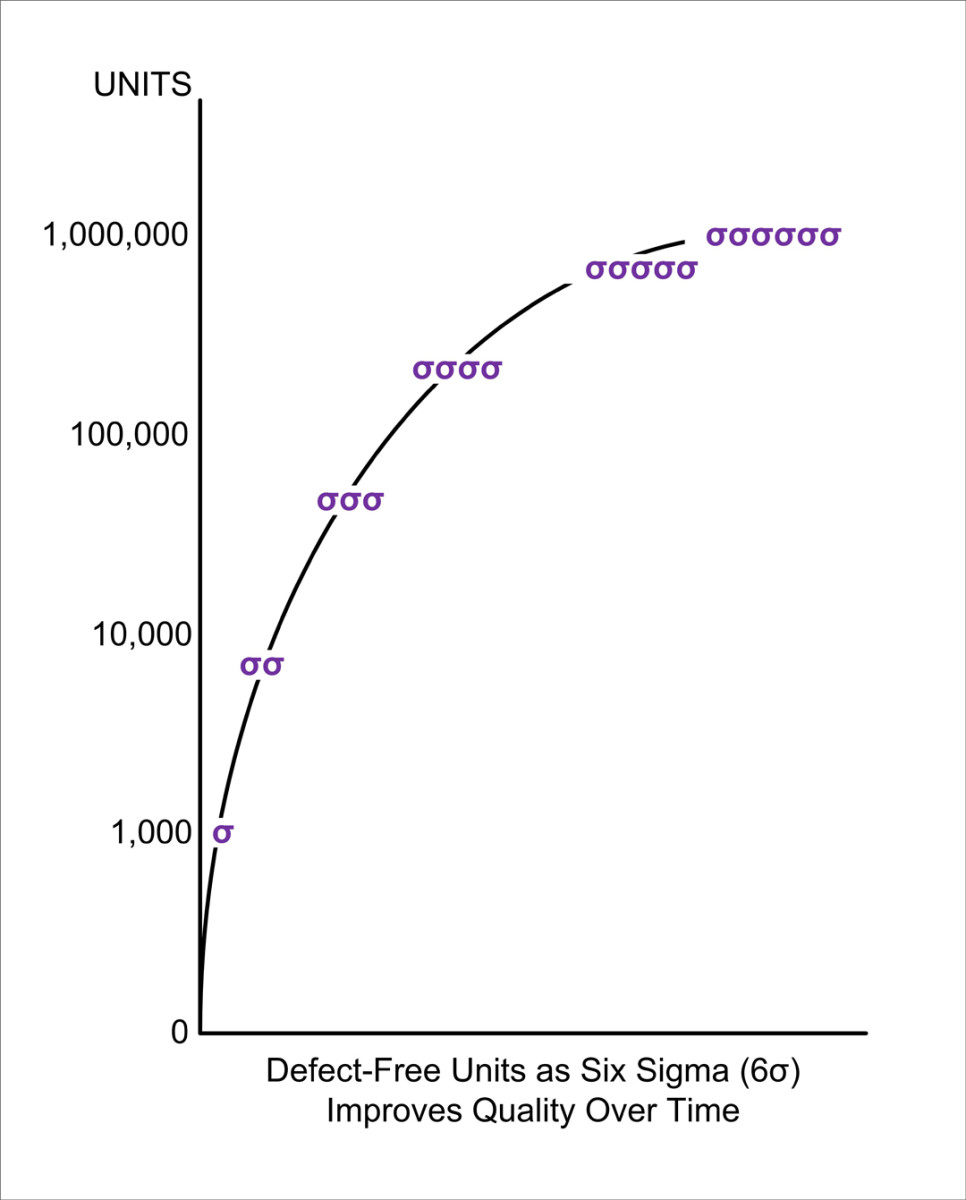ISO 9001: 2008 Quality Management System or Business Management System
Is ISO9001 Just for Quality?
So is ISO 9001:2008 just a Quality Management System (QMS) or a fully blown business management system?
Many people hear ISO 9001 and all they think of is quality, they consider the standard to be something that the company uses to make quality happen within their business. But the truth is that every aspect of your business contributes to the quality of your products and services from how you bill your customers to how you design your products.
ISO 9001:2008 is far more than just a quality control tool to ensure that what goes in the box is to specification. This article will explore what ISO9001 really is;
Who are ISO?
ISO are the International Organization for Standardization, based in Geneva they are a Non-Governmental Organization (NGO) that is responsible for setting standards worldwide. Countries agree the standards through treaties or writing them into their laws.
ISO is not an acronym but derived from the Greek word Isos which means equal, the reason being that they wished to highlight their mission to equalize standards across the different countries.
It is important to have common standards across all of the countries so that people are able to compare like for like. This levels the playing field for businesses across the world if products have to meet an international standard to be used.
ISO 9001:2008 Quality Management System
History of ISO 9001:2008
The start of ISO 9001 began way back during world war two when the UK government began to require manufacturers of munitions to follow documented procedures to prevent problems within those factories. These government requirements expanded over time beyond world war two into various defense standards both in the UK and in US, eventually the British Standards Institute Issued the standard BS9000 in 1971, aimed at the electronics industry. This was followed in 1974 by BS5179 “Guidelines for quality Assurance”, and then BS5750 in 1979.
In 1987, BS5750, was adopted as ISO 9001 by ISO, finally becoming a truly international standard defining the requirements for a quality management system. It was split into three standards, ISO9001 for design, development and production, installation and servicing, ISO 9002 for production, installation and servicing and ISO 9003 for final Inspection and test.
It was updated in 1994 (ISO 9001 : 1994) which put more emphasis on the use of preventative actions but still mainly focused on the inspection of products to ensure conformance.
The ISO9001:2000 was the major update that changed quite a few things for the industry, it removed ISO9002 and ISO9003, and focused more heavily on the use of process management. It also required far more involvement by senior management, as well as making the requirement for customer satisfaction and continual improvement a significant aspect of the standard.
The current update which was made in 2008 did not change the main focus of the standard merely reinforcing the true intent of the standard to form a quality management system that promotes quality rather than one that inspects quality in.
ISO 9001 Procedures
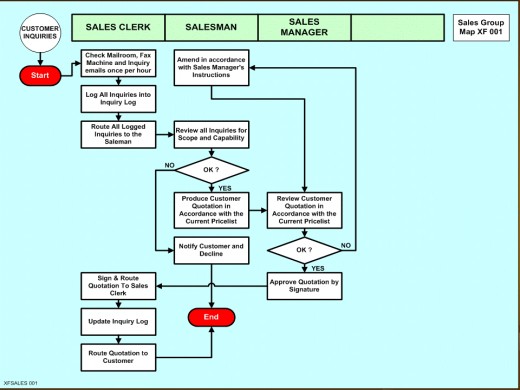
What is ISO 9001:2008 Quality Management System
There are three standards within the ISO 9000 series of standards;
ISO 9000 “Quality Management Systems – Fundamentals and Vocabulary”
ISO 9001 “Quality Management Systems – Requirements”
ISO 9004 “Quality Management Systems – Guidelines for Performance Improvements”
ISO 9001 is the main “Auditable” part of the trio and defines the requirements for your companies quality management system, these are the requirements that you will have to meet if you are to get your ISO 9001 Certificate.
ISO 9001:2008 Quality Management System
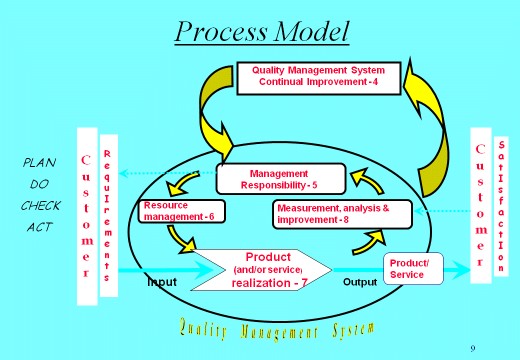
Benefits of an ISO 9001 Quality Management System
ISO 9001 was in my opinion falling out of favor prior to the year 2000 update, many companies were seeing little benefit from its implementation and were finding little if any difference between suppliers that were certified and those that were not!
The new release of the standard in 2000 (ISO9001:2000) and then the update in 2008 (ISO9001:2008) have in my opinion improved the situation, the standard now puts far more emphasis on the company’s ability to put in place the systems needed to ensure that quality happens (not just inspecting quality in). These requirements are on every part of the business as well as implicitly requiring the company to measure customer satisfaction and to continually improve.
If a company follows the true intent of ISO 9001 then the benefits will be enormous, it requires you to set objectives, involve everyone, measure and improve customer satisfaction, continually improve and so on. If you follow the requirements as intended rather than just setting up a minimal system to “fool” the auditor and get your certificate, you will be putting in place a framework by which your business will continually grow and improve.
ISO 9001:2008 QMS Process Improvement
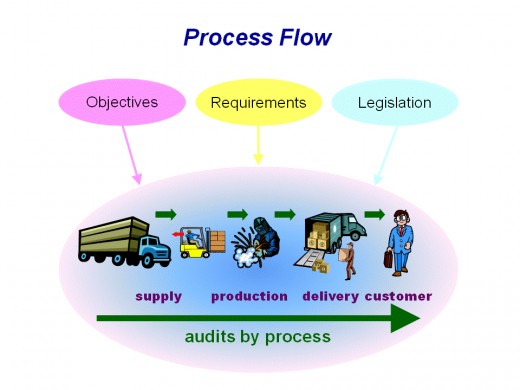
Quality Management System or Business Management System
ISO 9001 is “advertised” as being “quality management system – requirements”, but the standard covers just about every aspect of your business! Quality is relevant to just about every thing that a company does. Each and every process within your company has a “quality” side to it!
Is the process focused on delivering customer satisfaction? Is the process being conducted in a timely manner? Are there any Defects, are there ways to prevent them? Can we improve the process, are there plans in place to do so? What are the performance targets for this process and so on. Every process in your company is covered by this standard, and everything you do is a process!
Whether it is recruitment, product development, payroll, processing payments, or any other process in your business this standard applies! Quality is not just if the widget coming off the end of your production line matches the drawing, it is about all aspects of every business process.
Implementing ISO 9001 as it is meant to be implemented will mean that you are putting in place a framework not just for quality but for the overall management of your business.
ISO 9001:2008 Quality Management System Continuous Improvement
Continuous Quality Improvement through a quality management system based on ISO 9001 and ISO 9004
ISO 9004 is often overlooked by many companies, ISO 9001 is the “requirements” for the QMS so most companies only concentrate on just meeting these requirements. They show continual improvement in a few selected areas to satisfy the auditors and maintain their certificate in the reception area.
Many companies fail to truly make continual improvement part of the company’s culture, just trying to highlight a few small accidental areas of improvement for the auditor to satisfy them, rather than actually having a planned process of continual quality improvement.
ISO 9001 for too many companies is just “tick the boxes”, they do not go with the intention of the standard. ISO 9004 “Guidelines for performance improvements” should be required reading for all company “management”, this standard expands heavily on the requirements specified within ISO 9001 and spells out how to truly begin to improve and grow your business. Any business that can truly manage to implement the suggestions within ISO 9004 would be truly successful.
ISO 9001 Quality Management System Video
ISO and Quality Links
The following are some useful links that will help you gain additional information regarding the ISO 9000 standards;
International Organization for Standardization; As the organization responsible for ISO 9004 you can find information here about future changes and interpretation of this standard and others.
Lloyds Register Quality Assurance; Lloyds Register Quality Assurance offer training for all aspects of ISO 9001 quality management systems. They are also a certification body so can assess your quality management system to ISO 9001 with an eye to the continuous improvement aspects of ISO 9004.
British Standards Institute; The British Standards Institute (BSI) are also a certification and training body like Lloyds.
The American Standards Organization; (ANSI) American Standards Organization can give you training and help the same as the other certification bodies mentioned above.
International Register of Certified Auditors (IRCA); The International Register of Certified Auditors allows checks on the credentials of any trainer or auditor you should wish to use for certification or training to ISO 9004.
UKAS; The United Kingdom Accreditation Service has a comprehensive register of approved certification bodies such as Lloyds which is number one on their list.
Chartered Quality Institute (CQI); The Chartered Quality Institute in London is an ideal place to join if you are a quality professional, or even for a company. Then you will have access to all of their vast resources on quality management. (Formerly the Institute of Quality Assurance.)
American Society for Quality (ASQ); The American society for quality is the US equivalent of the CQI and can provide support in a similar fashion.
The above links can help with ISO 9000 Standards, ISO 9001, ISO 9004, Certification, auditing, Training, quality management systems, continuous quality improvement, etc.

